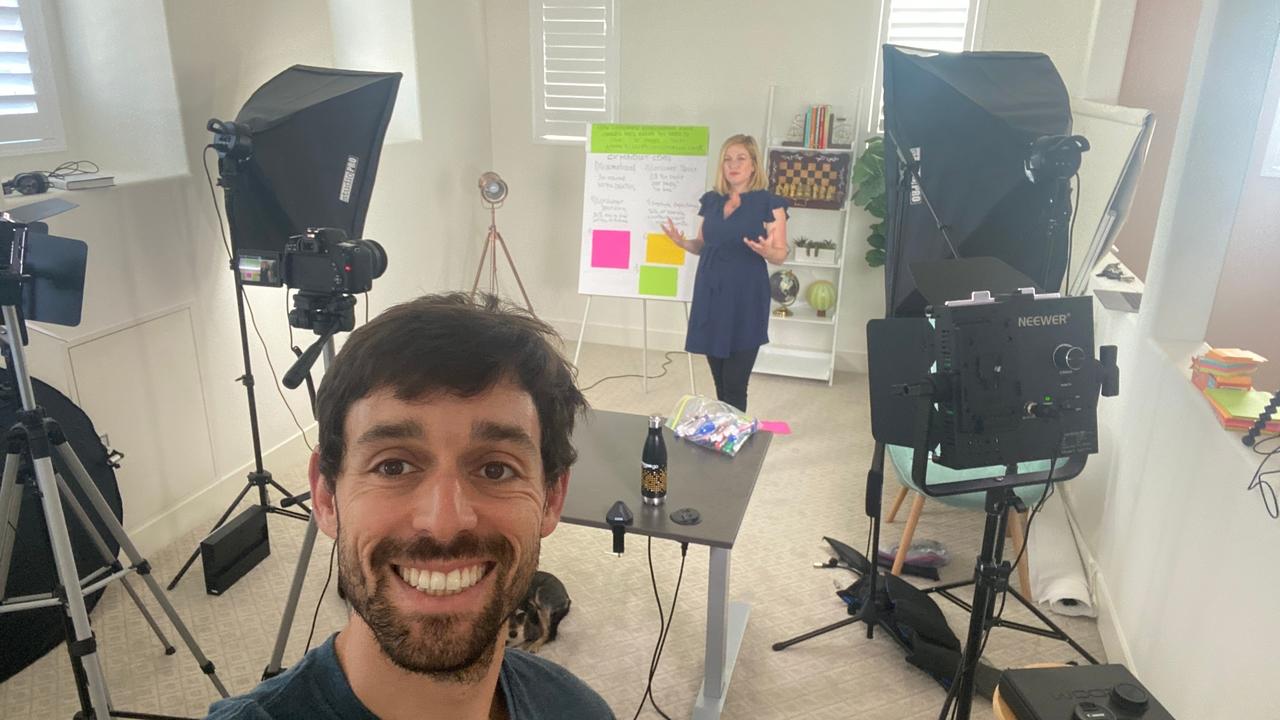Episode 12: How To Get A Book Deal

Blake and I have written six books between us with major publishers like HarperCollins, Wiley, Routledge, and McGraw Hill. These books have been launching pads for our respective careers. People often ask us “how does one actually get a book deal?” The answer isn’t that complicated, but the work can be tedious, tough, and time consuming. This is why we’ve broken down the formula for a book deal, because it is achievable for almost anyone. If you put in the time it’s likely you could be publishing a book very soon too. And books are not just a way to make money, they are the best business card you could give a prospect, they can launch your thought leadership business or speaking career. They can give you training and teaching opportunities, as well as allow you to charge more money for your products and services.
In this episode we share how we went about getting our respective book deals including an easy to follow breakdown of an actual pitch Blake personally used to secure a book deal. Here are some things to know if you want to write a book:
Self-publish vs traditional publisher
We both went for the traditional publisher route because it adds more credibility to a business audience and helps with things like endorsements for the back cover. In the case of my most recent book, The Future Leader, where I interviewed over 140 CEOs, most of them would have not talked to me if they knew it was a self-published book. In fact, “who is your publisher” was one of the first questions they asked me. But, when you do go with a traditional publisher most of the money from book sales goes to them you can make around $2/ hardcover copy assuming it costs around $20 (roughly). They are also notoriously slow to move, don’t usually have great design teams, may outsource the copy-editing process, and are in general what you would expect from a “traditional” publisher.
Self-publishing a book will mean that you can keep most of the money from each copy you sell, say $15/copy vs the $2/copy. But, you need to invest a fair amount in terms of copy-editing, book designing, printing, etc. If you are purely in it as a way to make money from the actual product then maybe self-publishing is a better choice, say for example if you already have a large following. Getting the top-tier level endorsements will be challenging and the credibility in the eyes of a business audience won’t be as high.
In general I’d recommend going with a traditional publisher if you can, at least for your first book just so you don’t need to deal with the process of actually building a book from scratch. Instead, focus on building up your following, create digital courses, get speaking gigs, and the like.
The advance
You have likely heard of some famous others getting seven figures advances on book deals. For some reason most people think an advance is free money, it’s not. Let’s say a publisher offers you a $10,000 advance. This just means that you don’t get any money from book royalties until you hit that 10k threshold. So if you make $2/copy and you get a $10,000 advance then you need to sell 5,000 copies of the book before you start getting any royalty checks. It’s not free money, it’s just a payment up-front that your royalties are set against. Most publishers today won’t even offer an advance.
Getting an agent
Neither of us worked with a literary agent but had we gotten rejected from many publishers then perhaps we would have gone down that route. An agent typically takes a cut of your book sales but if they can get you a solid deal then it could certainly be worth it for you. I recommend starting yourself first and if you don’t have any success then reach out to book agents. You can find them by doing simple google searches.
Book proposals
Every publisher will ask for a proposal and these are oftentimes in-depth and quite time consuming to put together. It’s not uncommon for them to be 30-40 pages long. The proposal asks for everything including book title ideas, book overview, sample chapters (if you don’t have any previously published content), competition, who your audience is, endorsements, timetable for the book, and how you plan to sell it.
The most important part of the book proposal is how you are going to sell and market the book. Publishers mainly care about one thing, their return on investment. You could pitch a book about almost anything but as long as the publisher is confident that you can sell enough copies, you will likely get the deal. Aiming of around 10,000 hardcover copies sold during the first year is a great benchmark. The publisher will want to know how many events you speak at, how big your mailing list is, how you plan on incorporating the book into your business, etc. Be prepared!
Blake and I go into much more depth about these topics and others in this episode of the BYOB Podcast.
Get The Entrepreneur’s Online Business Toolkit
In the PDF you will get our complete technology stack which lists out all of the tools and platforms we use and how we use them to build a 7-figure business.

